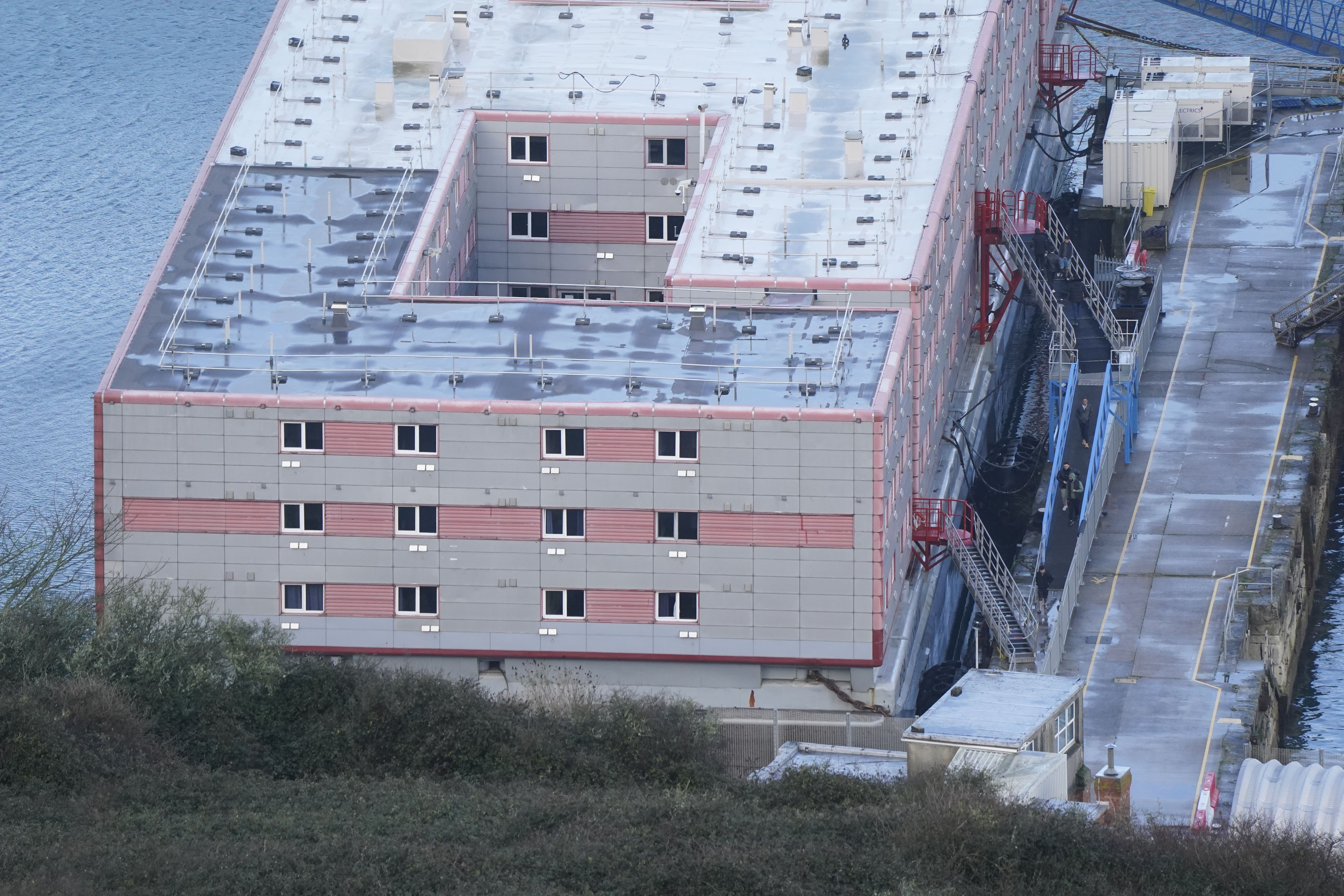Home Office shelves plans to acquire more asylum accommodation barges
It comes as the Bibby Stockholm in Dorset has been beset by problems.

Your support helps us to tell the story
From reproductive rights to climate change to Big Tech, The Independent is on the ground when the story is developing. Whether it's investigating the financials of Elon Musk's pro-Trump PAC or producing our latest documentary, 'The A Word', which shines a light on the American women fighting for reproductive rights, we know how important it is to parse out the facts from the messaging.
At such a critical moment in US history, we need reporters on the ground. Your donation allows us to keep sending journalists to speak to both sides of the story.
The Independent is trusted by Americans across the entire political spectrum. And unlike many other quality news outlets, we choose not to lock Americans out of our reporting and analysis with paywalls. We believe quality journalism should be available to everyone, paid for by those who can afford it.
Your support makes all the difference.The Home Office has shelved plans to procure more barges to hold asylum seekers as the Bibby Stockholm has been beset by problems, delays and disputes.
Ministers last year touted accommodation vessels as a way of cutting the cost of housing migrants in hotels, which has hit £8 million a day.
But it is understood that efforts to secure new barges have been abandoned amid struggles to find ports willing to take them.
We continue to look at a range of alternative accommodation sites to house asylum seekers
It comes as the Bibby Stockholm, the only accommodation barge commissioned so far by ministers, has faced a series of setbacks.
An Albanian asylum seeker died while living on board the barge moored off the coast of Portland in Dorset in December and is thought to have taken his own life.
The discovery of dangerous bacteria led to its evacuation last summer just days after the arrival of the first asylum seekers, and it remained vacant for two months.
More than £22 million of taxpayers’ money is being spent on the giant barge, while conditions on board have been criticised by campaigners.
A Home Office spokesperson said: “We continue to look at a range of alternative accommodation sites to house asylum seekers, including vessels which have been used safely and successfully by Scottish and Dutch Governments, and former military sites.”
The Prime Minister’s spokesman also said: “We continue to look at all options about how we can expand capacity, including with barges. And we’ve been clear the use of hotels to house asylum seekers is unacceptable.
“That’s why the Prime Minister said we are shutting a number of hotels that have been used for that, or returning them to their original use and looking at alternative accommodation sites.”
But as first reported by the i and the Sun, it is understood to no longer be a priority to secure further barges.
The use of hotels to house asylum seekers is being wound down by ministers, with the number to be cut by 50 by the end of January.
Rishi Sunak earlier this month said ministers had “cleared” the asylum backlog of 92,000 legacy cases, although the claim is being investigated by the official statistics watchdog after allegations from opponents that it is a “barefaced lie”.
Meanwhile more migrants arrived in the UK on Wednesday as Channel crossings resumed, with groups of people pictured being brought ashore by Border Force in Dover, Kent.
It comes after five people died while trying to make the journey from France on Sunday, a day after the first crossings of the year took place.
Some 263 migrants have arrived in the UK so far in 2024, according to Home Office figures.
The number of migrants crossing the Channel has fallen year-on-year for the first time since current records began in 2018, with the total arrivals in 2023 down more than a third on 2022.
The provisional annual total for the year, 29,437, is 36% lower than the record 45,774 crossings for the whole of 2022. But it is still the second highest annual total on record, above the figure for 2021 (28,526).